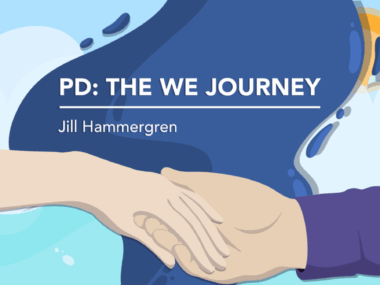As family caregivers, our greatest asset was love for our father
We leaned on each other, finding comfort in shared grief and anticipatory loss
Written by |

Growing up as part of a large family of eight children, we were shaped by the same parenting principles, church values, and largely similar educational experiences. As we grew older, however, our individual personalities and temperaments emerged — each of us possessing a unique way of thinking, reacting, and communicating.
These differences sometimes led to misunderstandings, but they never overshadowed a powerful, binding force in our family: the deep love we have for our parents. This shared, unconditional love became our anchor during my father’s battle with Parkinson’s disease, sustaining him through his illness and ultimately guiding us through the challenging journey of caregiving.
In our rural village in southeastern Nigeria, where literacy levels are low and belief in alternative medicine prevails, many see illness as a result of spiritual attacks. Parkinson’s disease, with its strange and progressive symptoms, could easily have been mistaken for something supernatural. Without the synergy within our family, fueled by our shared determination to support our father, we might have fallen into the same mindset. Perhaps our village relatives, out of concern and cultural beliefs, would’ve taken my father to spiritual houses, potentially delaying proper medical intervention.
Instead, our collective family resolve ensured that we approached his health from a medical perspective, staying grounded in facts while honoring our cultural background.
A paradox of love
In 2019, my mother called to share her concerns. She’d noticed troubling symptoms in my father — most notably, his inability to control his left hand. She spoke with each of us children, who were now living in the city. As the message spread, a new chapter in our lives began. Soon after, we decided to relocate our father to the city as well, where we could be close by to take turns assisting him. This move allowed us to step more fully into the role of caregivers, a duty that would test the depth of our love and unity in unimaginable ways.
From that moment, nothing was the same. Each of us, in our own way, took on the challenges of supporting our father, assisting him with movement, ensuring he took his medications, and managing the complexities of his dementia. Each family member brought his or her own strength to the table: Some of us were more hands-on with physical care, while others coordinated appointments, medications, and communication with healthcare providers. The caregiving roles shifted over time, but our commitment never did. As his symptoms progressed, so did our determination to give him the best care possible.
The most challenging aspect of caregiving, perhaps, was witnessing the cognitive decline that came with his dementia. Watching him, a man who had once guided us with wisdom and strength, struggle to remember our names or recognize familiar faces caused profound heartache. Yet it was during these moments that our family synergy shone brightest. We leaned on each other, finding comfort in the shared grief and supporting one another through the painful journey of anticipatory loss. Despite the physical and emotional exhaustion, we found strength in our shared purpose: to give our father the comfort and dignity he deserved.
There is, of course, a paradox in this kind of love. The deeper the love and the greater the commitment, the more intense the pain of loss. When he passed, the weight of that loss was immense, almost crushing. Yet we found solace in knowing that we’d given everything we could. There were no regrets, only memories of a family united in love and care. In time, we realized that while the pain of his passing might never fully fade, the bond we’d strengthened through caregiving would be a lasting legacy of our father’s impact.
To other families caring for loved ones with Parkinson’s disease, my advice is simple but heartfelt: Come together, form a consensus, and share the roles as best as you can. Where hiring professional caregivers is not an option, family members can create a support system that lightens the load for each person. While it can be challenging, the journey of caregiving is a profound opportunity to show love and honor, and through it, families can forge bonds that endure even beyond the hardships they face.
Note: Parkinson’s News Today is strictly a news and information website about the disease. It does not provide medical advice, diagnosis, or treatment. This content is not intended to be a substitute for professional medical advice, diagnosis, or treatment. Always seek the advice of your physician or another qualified health provider with any questions you may have regarding a medical condition. Never disregard professional medical advice or delay in seeking it because of something you have read on this website. The opinions expressed in this column are not those of Parkinson’s News Today or its parent company, Bionews, and are intended to spark discussion about issues pertaining to Parkinson’s disease.




Jeffrey J Chen
This is a very touching, real and loving story of family members honored and took care of their father when he was helpless with Parkinson's disease. It reflected the right upbring of the father to his sons/daughters with love and wisdom when they were growing up. It shows that love can conquer mountains as it is said.
Kira
I appreciate hearing your story. Your words help me to understand some of what our family is feeling due to my husband's new diagnosis: anticipatory loss. Thank you for sharing and inspiring our family to find beauty in our bonds, despite challenges.